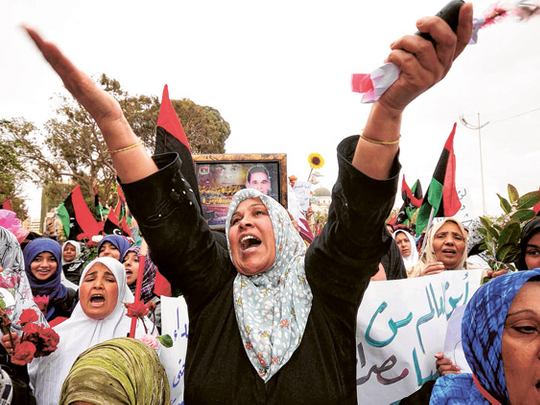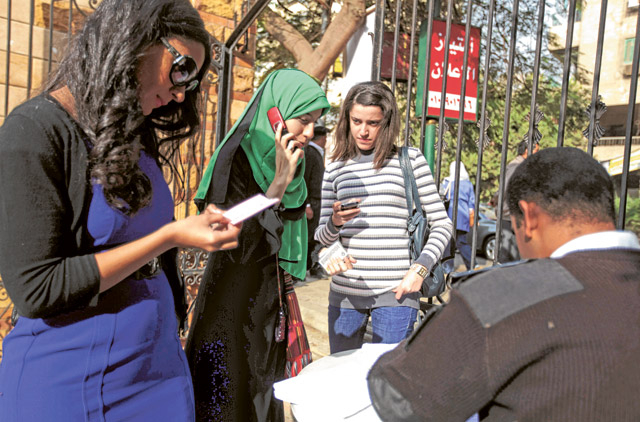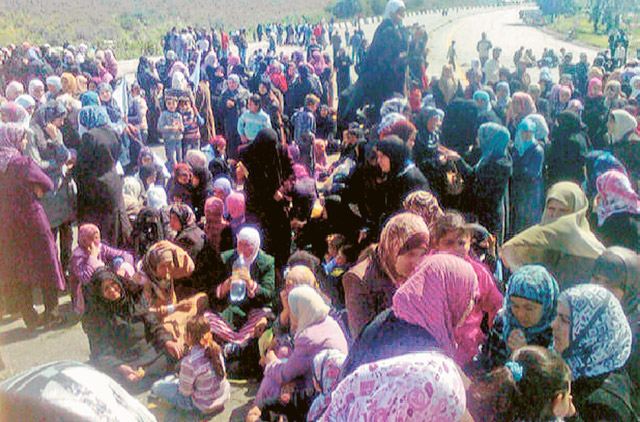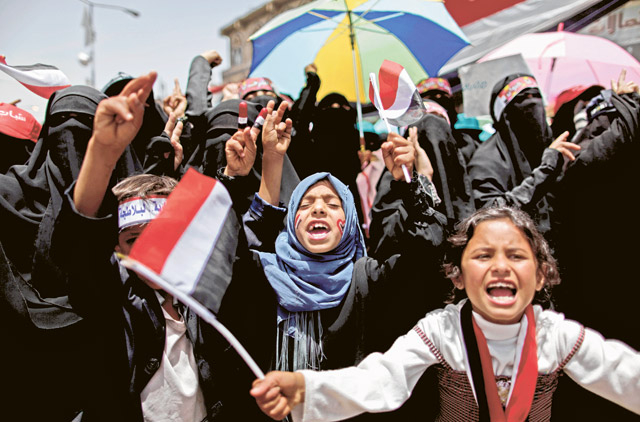
Benghazi: In a small room in Benghazi some young men and women are putting out a new opposition newspaper. "The role of the female in Libya," reads one headline. "She is the Muslim, the mother, the soldier, the protester, the journalist, the volunteer, the citizen", it adds.
Arab women can claim to have been all these things and more during the three months of tumult that have shaken the region. Some of the most striking images of this season of revolt have been of women: black-robed and angry, a sea of female faces in the capitals of north Africa, the Arabian peninsula, the Syrian hinterland, marching for regime change, an end to repression, the release of loved ones. Or else delivering speeches to the crowds, treating the injured, feeding the sit-ins of Cairo and Manama and the makeshift army of eastern Libya.
First protests
But as revolt turns into hiatus and stalemate from Yemen to Tunisia, Egypt and Libya, Bahrain and Syria, one thing is clear: for all their organising, marching, rabble-rousing, blogging, hunger-striking, and, yes, dying, Arab women are barely one small step forwards on the road to greater equality with their menfolk. Women may have sustained the Arab spring, but it remains to be seen if the Arab spring will sustain women.
In focus: Unrest in the Middle East
From the earliest rumblings of discontent in Tunisia at the turn of the year, it was clear that old images of Arab women as deferential, subservient and generally indoors would have to be revised. From the highly-educated Tunisian female elite of doctors, barristers and university professors to the huge numbers of unemployed female graduates, women were key players in the uprising that launched the Arab spring.
In Cairo, they were instrumental not just in protests but in much of the nitty-gritty organisation that turned Tahrir Square from a moment into a movement. Women were involved in arranging food deliveries, blankets, the stage and medical help.
In Yemen, it was a young woman, Tawakul Karman, who first led demonstrations on a university campus against the long rule of Ali Abdullah Saleh. Karman emerged as one of the leaders of a revolution still yet to run its course.
In Bahrain, women were among the first wave that descended on Pearl Square in the capital some with their children to demand change. And the Bahraini movement has latterly found a figurehead in Zainab Al Khawaja, the woman who went on hunger strike in protest at the beating and arrest of her father, husband and brother-in-law.
"Women have played a hugely influential role this time and put themselves in danger," said Nabeel Rajab, president of the Bahrain Centre for Human Rights. "They treated the injured in the streets and nursed them in their homes when they were too afraid to go to hospital."
In Libya, women were at the vanguard too, when mothers, sisters and widows of men killed in a prison massacre in 1996 protested outside a courthouse in Benghazi after their lawyer was arrested.
In Syria and Yemen, it took longer for women to join the movement en masse. In both countries, it took leadership blunders by the authorities to draw them in.
On the frontline
In Syria, hundreds of women marched through the town of Beida to deplore the indiscriminate detention of many of their menfolk. In Yemen, when president Saleh said it was un-Islamic for male and female protesters to march side by side, thousands of women poured on to the streets just to prove him wrong.
Women have not escaped the human cost of this uprising. During the police repression of the Tunisian revolution, they were beaten by security thugs, and in rural areas around Kasserine some were raped by police after demonstrations.
There were several reports of rape in Egypt amid the hurly burly, and a South African reporter for the US network CBS was sexually assaulted. In a notorious case in Tripoli, a woman, Eman Al Obaidi said she was raped by about 15 pro-Gaddafi militia.
Scores of women across the region have also been detained or disappeared.
Not every woman is for regime change. Yemeni women have staged vocal protests in favour of Saleh. And in western Libya, while women were largely absent from initial street protests that were suppressed by the regime, they have been conspicuous in more recent displays of loyalty to the Brother Leader, as Muammar Gaddafi is known. They chant, sing and ululate their praise usually segregated from male supporters.
The Arab spring was not about gender equality. Women in all countries involved say that. But many are alarmed that their efforts risk going unrewarded, and that men who were keen to have them on the streets crying freedom may not be so happy to have them in parliament, government and business boardrooms.
As one Egyptian protester told Catherine Ashton, the EU foreign policy supremo, during a recent visit to Tahrir Square: "The men were keen for me to be here when we were demanding that Mubarak should go. But now he has gone, they want me to go home."













